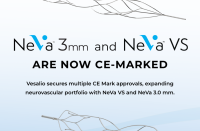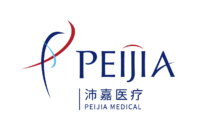VANCOUVER, Aug. 21, 2017 /PRNewswire/ – Cardiome Pharma Corp. (NASDAQ: CRME/ TSX:COM) today announced that it has received a response from the U.S. Food and Drug Administration (FDA) regarding the regulatory path for BRINAVESS® (vernakalant hydrochloride, IV), the Company’s antiarrhythmic drug for the rapid conversion of recent onset atrial fibrillation (AF). In its written reply, the FDA advised Cardiome that the data package proposed by Cardiome would not be sufficient to support a resubmission of the BRINAVESS® New Drug Application (NDA).
“In our most recent communication with the FDA, we proposed resubmission of the NDA based upon the original file and six years of accumulated safety data from sales of BRINAVESS in thirty-three countries, augmented by interim results from over 1,100 patients enrolled in the SPECTRUM study, a prospective post-authorization European Union safety study, along with pre-clinical data from subsequent studies the Company completed at the FDA’s request,” said William Hunter, MD, CEO and President of Cardiome. “We are disappointed that the Agency did not find these data compelling enough to recommend a resubmission, especially when several regulatory bodies in major jurisdictions around the world, including Canada in March 2017, have found the drug to be safe and effective. We will continue to have a dialogue with the FDA as we review our regulatory options.”
Cardiome believes the clinical trial and commercial experience with BRINAVESS® demonstrates that it is a best-in-class, fast-acting, atrial fibrillation converting agent and it intends to explore every reasonable avenue available to make Vernakalant available in the United States.
About BRINAVESS®
BRINAVESS® (vernakalant HCl, IV) is an antiarrhythmic drug that acts preferentially in the atria by prolonging atrial refractoriness and slowing impulse conduction in a rate-dependent fashion. BRINAVESS® is approved for marketing in Europe, Canada and several other countries worldwide. In Europe, it is approved for the rapid conversion of recent onset atrial fibrillation to sinus rhythm in adults: 1) for non-surgery patients: atrial fibrillation < 7 days duration; and 2) for post-cardiac surgery patients: atrial fibrillation < 3 days duration. Vernakalant IV is not approved for use in the United States.
About Atrial Fibrillation
Atrial Fibrillation (AF) is a supraventricular tachyarrhythmia with uncoordinated atrial activation resulting in ineffective atrial contraction and if left untreated, structural and/or electrophysiological atrial tissue abnormalities.1 AF is a common cardiac rhythm disturbance that increases in prevalence with advancing age.1 According to the American Heart Association, estimates of the prevalence of AF in the U.S. ranged from 2.7 million to 6.1 million in 2010, and is expected to rise to between 5.6 million to 12 million in 2030.2 There are two strategies to manage AF, namely, rhythm- or rate-control. A rhythm-control strategy may be used in patients who are severely compromised, remain symptomatic despite adequate rate control, when adequate rate control is difficult to achieve, when long term rhythm control therapy is preferred, younger patient age, presence of tachycardia-mediated cardiomyopathy, and first episode of AF.1,3 Early intervention with a rhythm-control strategy to prevent progression of AF may be particularly beneficial to the AF patient.1
About Cardiome Pharma Corp.
Cardiome Pharma Corp. is a specialty pharmaceutical company dedicated to the development and commercialization of innovative therapies that will improve the quality of life and health of patients suffering from disease. Cardiome has two marketed, in-hospital, cardiology products, BRINAVESS® (vernakalant IV), approved in Europe, Canada, and other countries for the rapid conversion of recent onset atrial fibrillation to sinus rhythm in adults, and AGGRASTAT® (tirofiban HCl) a reversible GP IIB/IIIa inhibitor indicated for use in patients with acute coronary syndrome. Cardiome also commercializes ESMOCARD® and ESMOCARD LYO® (esmolol hydrochloride), a short-acting beta-blocker used to control rapid heart rate in a number of cardiovascular indications, on behalf of their partner Amomed in select European markets. Cardiome has also licensed: XYDALBA™ (dalbavancin hydrochloride), a second generation, semi-synthetic lipoglycopeptide approved in the EU for the treatment of acute bacterial skin and skin structure infections (ABSSSI) in adults for select European and Middle Eastern countries and Canada from Allergan; and TREVYENT®, a development stage drug device combination that is under development for Pulmonary Arterial Hypertension for Europe, the Middle East and for Canadian markets from SteadyMed Therapeutics.
Cardiome is traded on the NASDAQ Capital Market (CRME) and the Toronto Stock Exchange (COM). For more information, please visit our web site at www.cardiome.com.
References:
|
1. |
January CT et al. 2014 AHA/ACC /HRS guideline for the management of patients with atrial fibrillation. J Am Coll Cardiol. 2014;34:e1 – e76. |
|
2. |
Mozaffarian D et al. Heart Disease and Stroke Statistics-2016 Update: A Report From the American Heart Association. Circulation. 2016 Jan 26;133(4):e38-60. |
|
3. |
Camm AJ et al. Guidelines for the management of atrial fibrillation, The Task Force for the Management of Atrial Fibrillation of the European Society of Cardiology (ESC). Eur Heart J. 2010;31:2369-2429. |
Forward-Looking Statement Disclaimer
Certain statements in this news release contain forward-looking statements within the meaning of the Private Securities Litigation Reform Act of 1995 or forward-looking information under applicable Canadian securities legislation that may not be based on historical fact, including without limitation statements containing the words “believe”, “may”, “plan”, “will”, “estimate”, “continue”, “anticipate”, “intend”, “expect” and similar expressions. Forward-looking statements may involve, but are not limited to, comments with respect to our objectives and priorities for 2017 and beyond, our strategies or future actions, our targets, expectations for our financial condition and the results of, or outlook for, our operations, research and development and product and drug development. Such forward-looking statements involve known and unknown risks, uncertainties and other factors that may cause the actual results, events or developments to be materially different from any future results, events or developments expressed or implied by such forward-looking statements. Many such known risks, uncertainties and other factors are taken into account as part of our assumptions underlying these forward-looking statements and include, among others, the following: general economic and business conditions in the United States, Canada, Europe, and the other regions in which we operate; market demand; technological changes that could impact our existing or future products; competition; existing governmental legislation and regulations and changes in, or the failure to comply with, governmental legislation and regulations; availability of financial reimbursement coverage from governmental and third-party payers for products and related treatments; adverse results or unexpected delays in pre-clinical and clinical product development processes; adverse findings related to the safety and/or efficacy of our products or products; decisions, and the timing of decisions, made by health regulatory agencies regarding approval of our technology and products; the requirement for substantial funding to expand commercialization activities; and any other factors that may affect our performance. In addition, our business is subject to certain operating risks that may cause any results expressed or implied by the forward-looking statements in this presentation to differ materially from our actual results. These operating risks include: our ability to attract and retain qualified personnel; our ability to successfully complete pre-clinical and clinical development of our products; changes in our business strategy or development plans; intellectual property matters, including the unenforceability or loss of patent protection resulting from third-party challenges to our patents; market acceptance of our technology and products; our ability to successfully manufacture, market and sell our products; the availability of capital to finance our activities. These and other risks are described in the Form 40F and associated documents filed March 29, 2017 (see for example, “Risk Factors” in the Annual Information Form for the year ended December 31, 2016), in the Form 6-K filed August 10, 2017, and in our other filings with the Securities and Exchange Commission (“SEC”) available at www.sec.gov and the Canadian securities regulatory authorities at www.sedar.com. Given these risks, uncertainties and factors, you are cautioned not to place undue reliance on such forward-looking statements and information, which are qualified in their entirety by this cautionary statement. All forward-looking statements and information made herein are based on our current expectations and we undertake no obligation to revise or update such forward-looking statements and information to reflect subsequent events or circumstances, except as required by law.
SOURCE Cardiome Pharma Corp.






